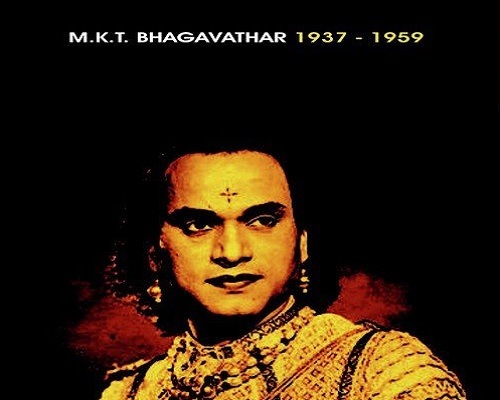M. K. Thyagaraja Bhagavathar, commonly referred to as MKT, was an iconic figure in Indian cinema and Carnatic music. His career spanned several decades, but it was post-1934 that he truly cemented his status as a cultural icon. This period marked his ascendancy as a major figure in the Tamil film industry and as a revered Carnatic musician.
Early Career and Rise to Fame
Before delving into his post-1934 achievements, it’s essential to understand MKT’s early career. Born in 1910 in Mayavaram, Tamil Nadu, MKT displayed a prodigious talent for music from a young age. His early performances in classical music set the stage for a future that would intertwine with the burgeoning Tamil film industry.
The Golden Era: 1934 Onwards
Breakthrough in Cinema
1934 was a pivotal year for MKT, as he made a significant transition from being primarily a Carnatic musician to a film actor. His debut film, “Pavalakkodi,” released in 1934, was a musical drama that showcased his vocal prowess. The film’s success catapulted him to fame and established his dual identity as both a singer and an actor.
Following “Pavalakkodi,” MKT starred in several hit films such as “Chintamani” (1937) and “Ambikapathy” (1937). These films were not only box-office successes but also critically acclaimed, primarily due to MKT’s exceptional ability to blend his musical talent with his acting. His melodious voice, combined with his charismatic screen presence, made him an unrivaled star of his time.
Musical Contributions
Beyond his acting, MKT’s contributions to Carnatic music were profound. Even as he pursued a career in films, he never abandoned his roots in classical music. His film songs often had a classical base, which introduced Carnatic music to a broader audience. This fusion of film and classical music played a crucial role in popularizing Carnatic traditions among the masses who might not have otherwise been exposed to it.
Influence on Tamil Cinema
MKT’s influence on Tamil cinema was multi-faceted. He was among the first to demonstrate that a film star could also be a successful classical musician, thus paving the way for future actors with similar dual careers. His films often featured elaborate musical sequences that showcased his singing, setting a trend for incorporating extensive musical performances in Tamil cinema.
Moreover, MKT’s success helped establish the musical film genre in Tamil cinema, a genre that remained popular for decades. His films often featured themes from Tamil literature and mythology, reflecting his deep cultural roots and contributing to the preservation and propagation of Tamil heritage.
Personal and Professional Challenges
Despite his immense popularity, MKT’s career faced significant challenges. In the early 1940s, he was implicated in a sensational murder case, which resulted in his incarceration. This incident tarnished his image and led to a temporary decline in his career. However, his eventual acquittal and return to the film industry marked a period of redemption and resurgence.
Post-1945, MKT attempted to revive his career with mixed success. While he continued to act and sing, the changing dynamics of the film industry and the emergence of new stars meant that his later years did not match the dizzying heights of his earlier fame. Nevertheless, his legacy remained intact, and he continued to be revered as a pioneering figure in both cinema and music.
Legacy and Impact
MKT’s impact on Indian culture extends far beyond his lifetime. He passed away in 1959, but his contributions to Tamil cinema and Carnatic music continue to be celebrated. Modern playback singers and actors often cite him as an inspiration, and his songs remain popular among classical music aficionados.
In Tamil Nadu, MKT is remembered not just for his artistic talents but also for his role in shaping the cultural landscape. His life story, marked by both triumphs and tribulations, is a testament to his resilience and enduring appeal. His ability to navigate the worlds of classical music and popular cinema seamlessly is a legacy that continues to inspire future generations of artists.
In conclusion, M. K. Thyagaraja Bhagavathar‘s post-1934 career was a period of unparalleled success and profound influence. His contributions to Tamil cinema and Carnatic music have left an indelible mark on Indian culture, ensuring that his legacy endures long after his passing.

